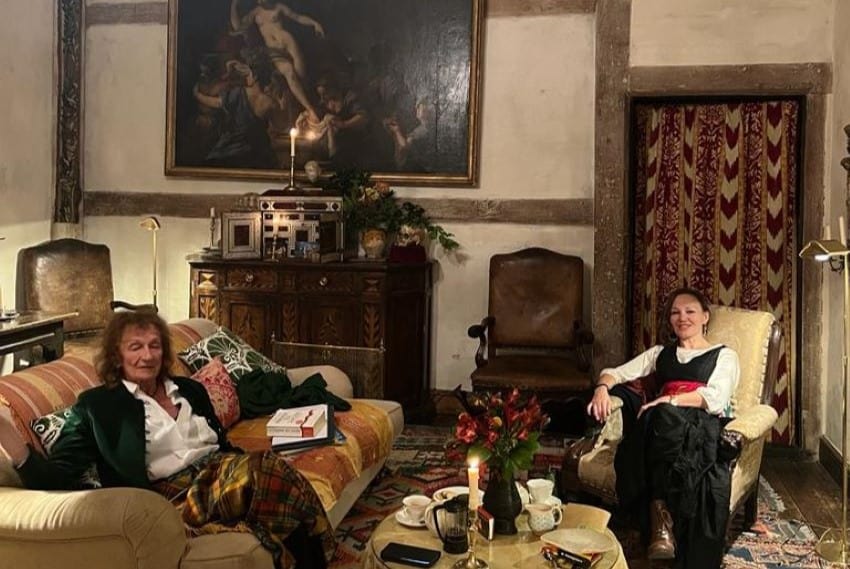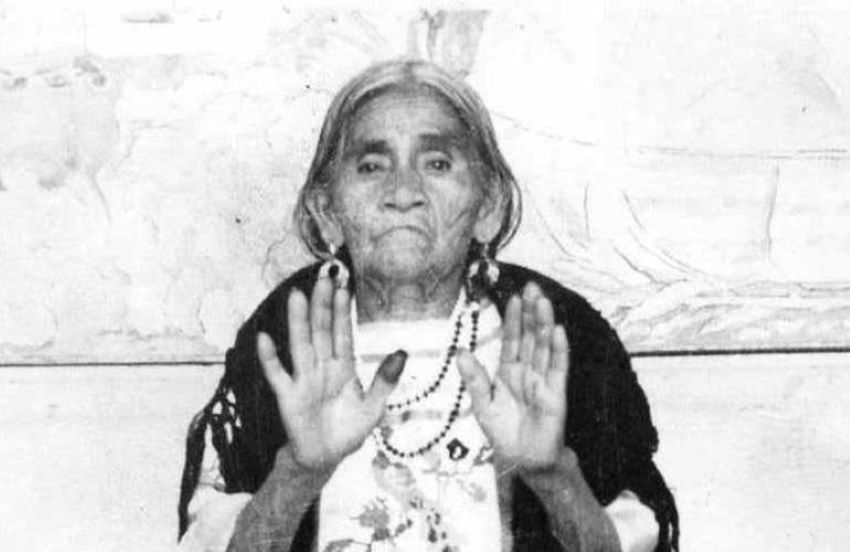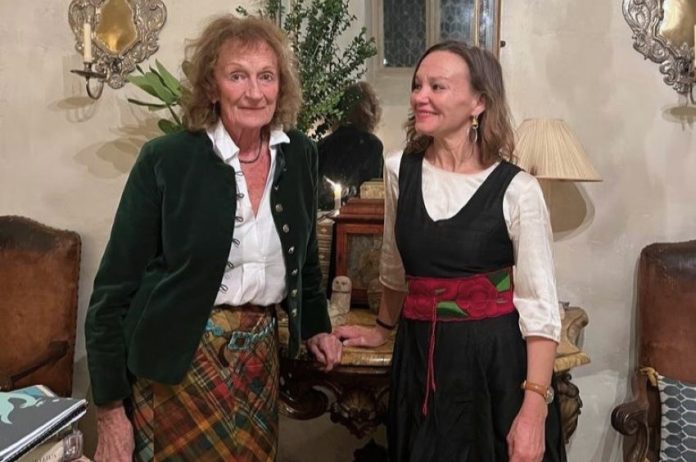Why are people taking psychedelics for mental health?
Psychedelics (serotonergic hallucinogens) are any substance or specimen containing psychoactive compounds, altering perception or mood and affecting numerous cognitive processes; for example, psilocybin – found in the ‘magic mushroom,’ or lysergic acid diethylamide (LSD) – which Swiss scientist Albert Hoffman synthesized in 1938 from the ergot fungus.
In the last decade, we have witnessed a psychedelic renaissance; science has shown the remarkable effectiveness of these compounds for what Lady Amanda Feilding, founder of the Beckley Foundation, calls “cerebral enhancement.” The findings demonstrate powerful results for treatment-resistant depressive disorders and trauma, and Amanda’s more recent studies will look at neurodegenerative disease and autism. Studies conducted at John Hopkins University, the Beckley/Imperial Psychedelic Research Programme, Cornell and other prestigious academic institutions around the world yield hope for mental and physical illness.

As the legalization of these substances for therapeutic usage unfolds slowly across the globe (mostly in the United States and Europe), the public at large is partaking in settings ranging from the doctor’s office to spiritual retreats. To improve safe access, Amanda co-founded Beckley Retreats in 2021, with one of her sons and other long term supporters of the psychedelics field. Beckley Retreats now hosts legal psychedelic healing retreats in the Netherlands and Jamaica and was awarded 2023 Retreat of the Year by Microdose Magazine.
Psychedelics: when spirituality meets cutting-edge neuroscience
“I have a lot of faith in the potential of these compounds, and in the bigger picture, they offer a new way of life. Psychedelics are really a gift of life – or a “God”-given gift, depending on your stance,” says Amanda. Her Foundation, in affiliation with scientists and universities, has conducted 40 years of research, and next year will see the most ambitious studies with LSD – a pure, non-toxic and non-addictive substance – yet conducted; the Double-Headed Research Program – which will examine how LSD may aid longevity, creativity, cognitive and physical health. She’s doubly thrilled to be working with the latest fMRI technology – the neuroimaging devices MRI 7 Tesla and MEG.
“Before he died, Albert Hoffman implored me to ‘bring back his problem child’ for his 100th birthday – that would have been in 2006,” Amanda tells me: “The gods, sadly, don’t tell the time! But we’re only a few years off, and I’m ready to hit next year with these pioneering studies using Albert’s brainchild, LSD.”
Hoffman vigorously advocated for LSD’s responsible usage since its creation. “Anything that interacts powerfully with our consciousness, such as the internet, for example, can be used beneficially or completely misused,” Amanda stresses. Although more a thinker and an artist, her Foundation’s affiliation with science has been imperative for her work to gain traction, legally and in public opinion. Amanda has worked tirelessly since the 1970s to raise the profile of psychedelics, but it was only in the last several years that the taboo around the topic started to lift: “I had to speak about [psychedelics] in the language of science, and so I gathered the best scientists and organizations around me.”
According to Statista, Forbes and Healthcare Drive data, government spending on mental health in the US has increased by over 50% in the last four years, suggesting an escalating mental health crisis. “Psychedelic medicine and my projected studies with King’s College and UCL in London next year offer a far more affordable and effective way forward,” Amanda affirms.
Amanda Feilding believes her psychedelic studies can help save humanity
Though it may sound like a tall order, Amanda believes at the core of new science is the search to heal society. She mentions a growing pantheon of activists and initiatives implementing good in the world and adds, “I just want to play my part. Ever since I ‘took a trip to the heavenly funfair’ with LSD in the ’60s, I’ve devoted my life to studying the potential positive effects of psychedelics.”
“We are at the foothills of the mountains!” she remarks. “It feels like a critical time for human evolution. One hopes that the clever little monkey (us), with the help of these compounds, might change the way we act for better alternatives.”
At a time when we are witnessing the birth of Artificial Intelligence, it makes sense that we embark on a quest to better understand our own! For those who believe Artificial Intelligence forebodes the demise of our Natural Intelligence, psychedelics might be the keystone game-changer. An entire field of modern medicine (Larry Dossey, MD’s work, for example) is examining the role of consciousness in health and illness, and Amanda is certainly playing her part. This sprightly, sharp-minded and enthusiastic 80-year-old works 15 hours a day, and has multiple studies taking place at any time.
Tracing a thread through a century of psychedelics: from Maria Sabina to science
In the past century, anthropologists have discovered that many societies, including those of Mexico, used psychedelic substances for healing. Scientific and public interest began to form in 1957, when R. Gordon Wasson, a banker at JP Morgan and amateur mycologist (someone who studies fungi), published an article in LIFE magazine raving about his experience with Maria Sabina, la sabia (wise woman). Maria Sabina’s veladas (spiritual ceremonies) involved using magic mushrooms harvested in Huautla de Jiménez, Oaxaca. Tourists and celebrities like Bob Dylan and John Lennon then flocked to see la sabia, seeking mystical experiences for healing.

“Maria Sabina and these Mexican Indigenous ceremonies actually established the road map for the current science…I cast an honorary nod to my friend, Hoffman, and his LSD discoveries. But he himself was inspired by Mexico’s use of magic mushrooms for community health,” Amanda remarks.
Forty years after Maria Sabina’s influence in the West, we have the technological advancements and hard science to observe the brain in real-time, beyond magical speculation. We can observe how the brain can rewire and repair itself when experiencing what Sabina and Feilding call ‘the mystical state.’ The cutting-edge hardware of fMRI graphs – which model the brain as a complex network – reveals that neuroplasticity is no hoax and that the brain reaches its greatest plasticity when in the altered state of a psychedelic experience. “We plan to look more deeply into the underlying mechanism of how consciousness and the brain works”, says Amanda.
Where might the Beckley Foundation’s psychedelic studies take us in the future?
2019 saw seminal results with the Beckley Foundation’s vast experimental microdosing platform in collaboration with Maastricht University in the Netherlands. 2024 promises to be another breakthrough year for the Beckley Foundation, with Amanda’s spreading mycelium of cutting edge studies – which she carries out in collaboration with scientists at the world’s leading institutions. Her current studies focus on LSD, in macro- and micro- doses, which hopefully will help provide supporting evidence for the creation of new psychedelic medicine. Amanda’s previous explorations of LSD have proved that it can successfully stimulate a range of cognitive processes, from mood to pain relief and the increasing of neuroplasticity. Amanda is looking forward to working with Karl Friston, the world’s leading expert in the creation of fMRI algorithms, using the latest MRI technology with full doses of LSD.
Psychedelics for palliative care and neurodegenerative disease
She is currently curating her roster of scientists to further the studies. “I dream of incorporating the positive results for neurodegenerative illnesses, such as dementia and Alzheimer’s, as well as a palliative care project.” She has already made progress and is in conversation with some of the most important care homes in Europe. Dementia is a great expense to society, and many who suffer from the disease have few care options. “This is an area in fantastic need,” Amanda implores.
“We’ve seen from our work that microdoses of LSD can improve quality of life, cognitive process, happiness and the sense of Self,” she explains. “My desire is to help transform the process of how we age and die. We have also witnessed LSD’s effectiveness for vascular disorders and cerebral circulation,” Amanda continues, “Interestingly, these are ignored areas in modern science.”
Psychedelics: a woman’s domain?
Spending an afternoon with Amanda felt a bit like observing a modern day Maria Sabina, except this ‘medicine woman’ is protected by the almighty mantle of science, and the context of this historical moment. “I might have been burned at the stake a century ago”, she remarks. She presents more like an artist, and the Beckley Foundation, her childhood home, and an ancient, rambling pile in the Oxfordshire countryside certainly has the sense of a conceptual art project rather than a science park -the offices are housed in the old cow shed of her father’s farm. “I don’t have any letters after my name – my father was a bit of an iconoclast – so in order for my work to be taken seriously, I have gathered the best scientists around me and joined hands with the academic institutions that know we are onto something.”
One might imagine Maria Sabina, the Mexican Indigenous healer, whispering through the mists of this century’s time and space continuum, and egging on Amanda, affectionately known as Lady Mindbender.
Amanda muses, “As a child, I dreamt of watering the desert.”
Her tireless work over the last half of a century is a fulfillment of that childhood dream.
As the Foundation celebrates its 25th Anniversary this year, she adds enthusiastically, “After decades of using art and political campaigns, I had come to realize that science was the best way to overcome the taboo and break through the oppressive wall of the War on Drugs. For several years, our work at the Beckley Foundation was thought of as fringe and dangerous, not to be taken seriously. But in time, the data we produced spoke for itself. We have also witnessed significant strides in drug policy reform across multiple continents, including decriminalization, legalization, and medicalisation. Just recently, the UN officially shifted its stance towards harm reduction and human rights-based drug policies, and away from prohibitionist criminalisation”.
As she riffs about consciousness, evolution, mental health and the betterment of society, her words seem to echo back to the beginnings of the 20th century, when Mexican sabia, Maria Sabina, made the choice to share the secrets of mystical communion and healing with an American banker.
“We’re lucky to be at this stage of civilization,” Amanda concludes. “We can bring the usage and wisdom of these compounds into the heart of medicine. I’ve been working with the taboos around altered states my whole life, and finally, we might just be getting somewhere, as society finally begins to recognise and respects the highly important role of psychedelics for our health and happiness.”
If readers are interested in supporting the work of the Beckley Foundation, please visit the website.
Henrietta Weekes is a writer, editor, actor and narrator. She divides her time between San Miguel de Allende, New York and Oxford, UK.
